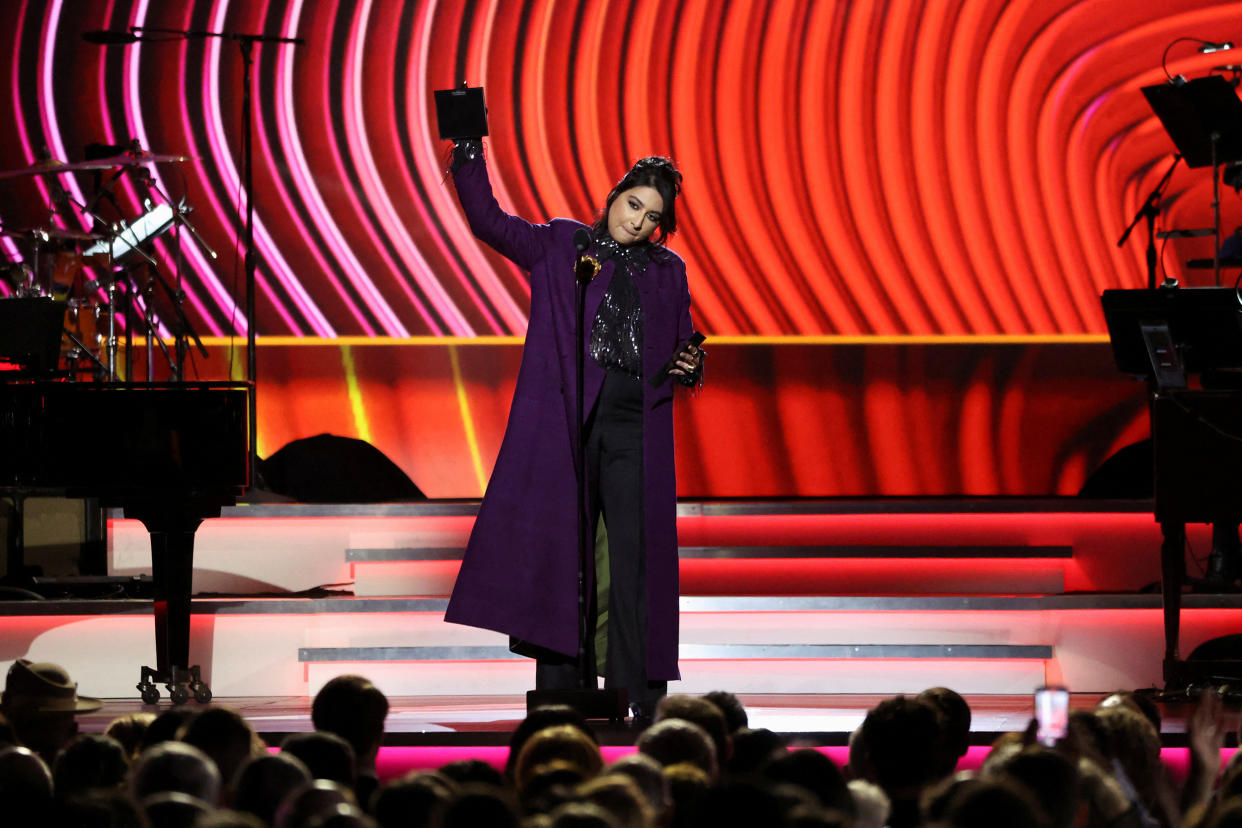Pakistani singer Arooj Aftab is credited with pioneering a new music genre
The Pakistani singer Arooj Aftab dedicated her most recent album to spaces that don’t exist anymore. Blending together traditional Sufi Muslim and Hidustani classical sounds with folk, jazz and minimalism, many critics credit the artist with pioneering a new genre, a merging of two worlds.
“For me, Lahore has been this place that’s sort of time-encapsulated,” she said in an interview with YouTube series Momina’s Mixed Plate. “I left when I was like 19 or 20, and I haven’t really come back since then.”
Following a career that transcends continents and languages, Aftab, now 37, became the first Pakistani artist to win a Grammy. She took home the best global performance award on Sunday for her song “Mohabbat,” part of her album “Vulture Prince,” recorded entirely in Urdu.
In her acceptance speech, she described “Mohabbat” as a record that “broke me and put me back together.”
“Mohabbat,” meaning love or affection in Hindi and Urdu, is a nearly-eight-minute melody that uses folksy guitar sounds, South Asian flutes and longing lyrics that make up ghazal, a traditional Arabic poetry form. Whether it be a house demolished back home or a relationship cut short, she said lost experiences have heavily inspired her work.
The lyrics describe the pain of separation from a loved one, which Aftab says she draws from the experience of losing her younger brother and another close friend over a short time.
“With relationships, you think that you’ll be friends with someone forever,” she said to Momina’s Mixed Plate. “You don’t think your relationship with your brother will be short-term.”

In representing those feelings, she said English-language lyrics or poetry couldn’t quite capture it.
“I haven’t seen poetry in English that has clicked with me as yet as this old Urdu poetry has done,” she said.
Born in Saudi Arabia to Pakistani parents, Aftab says the memories of her childhood heavily informed her album. While growing up in Lahore, Pakistan, she taught herself the guitar and promoted her songs to Pakistani audiences online.
She moved to the U.S. to attend the Berklee College of Music in Boston, later settling in New York City, where she has worked on editing tracks and scoring films.
“Vulture Prince” became her first solo success, bringing Aftab critical acclaim and attention from the likes of former President Barack Obama, who included “Mohabbat” on his 2021 summer playlist. Later this month, she will also become the first Pakistani artist to perform at Coachella.
Her success puts her in a small group of South Asian performers who have achieved notoriety in the U.S. But in an interview with the Los Angeles Times in December, she says she has no interest in those labels.
“I’ve been part of this industry for so long that I don’t deserve to be other-ized anymore,” she said.
